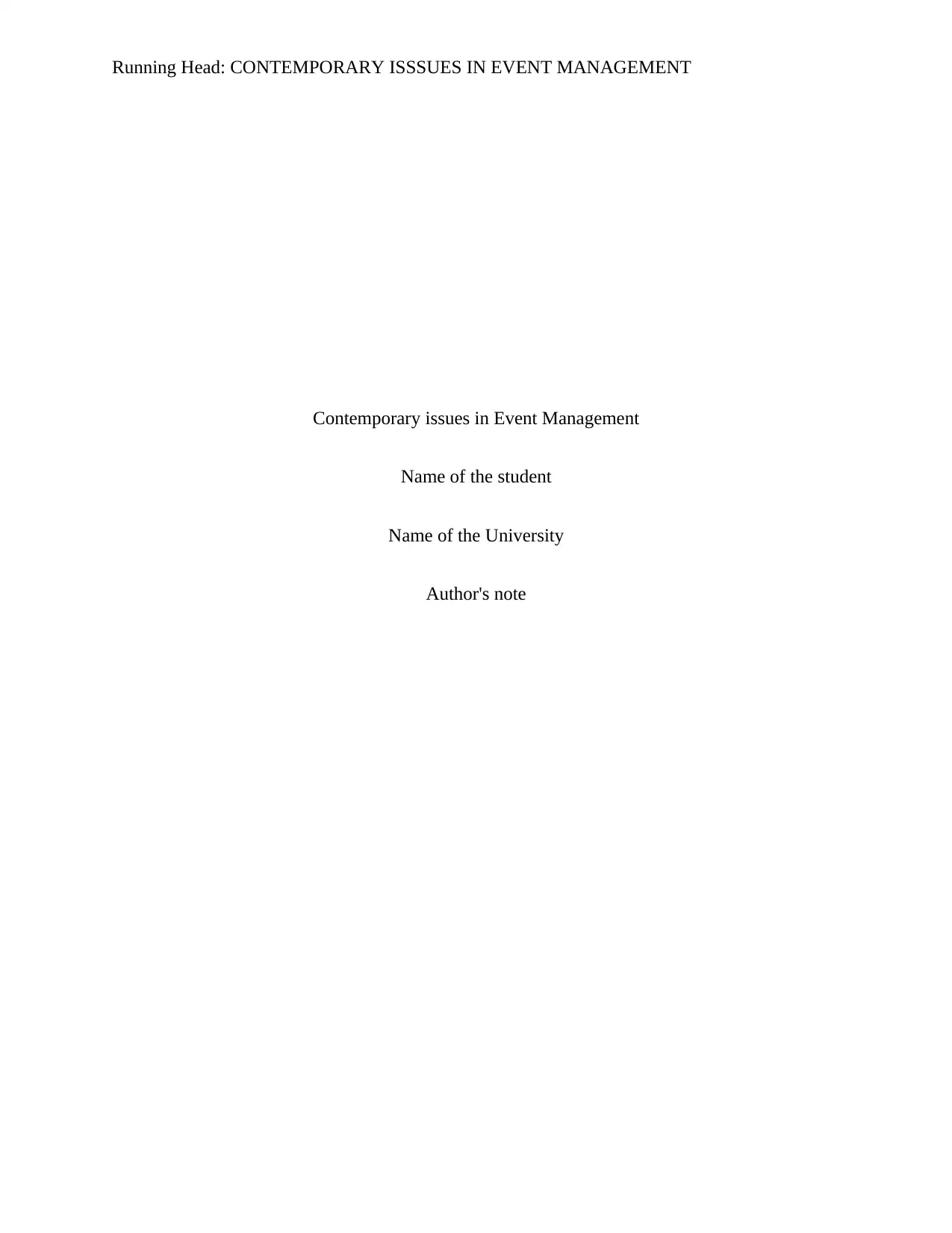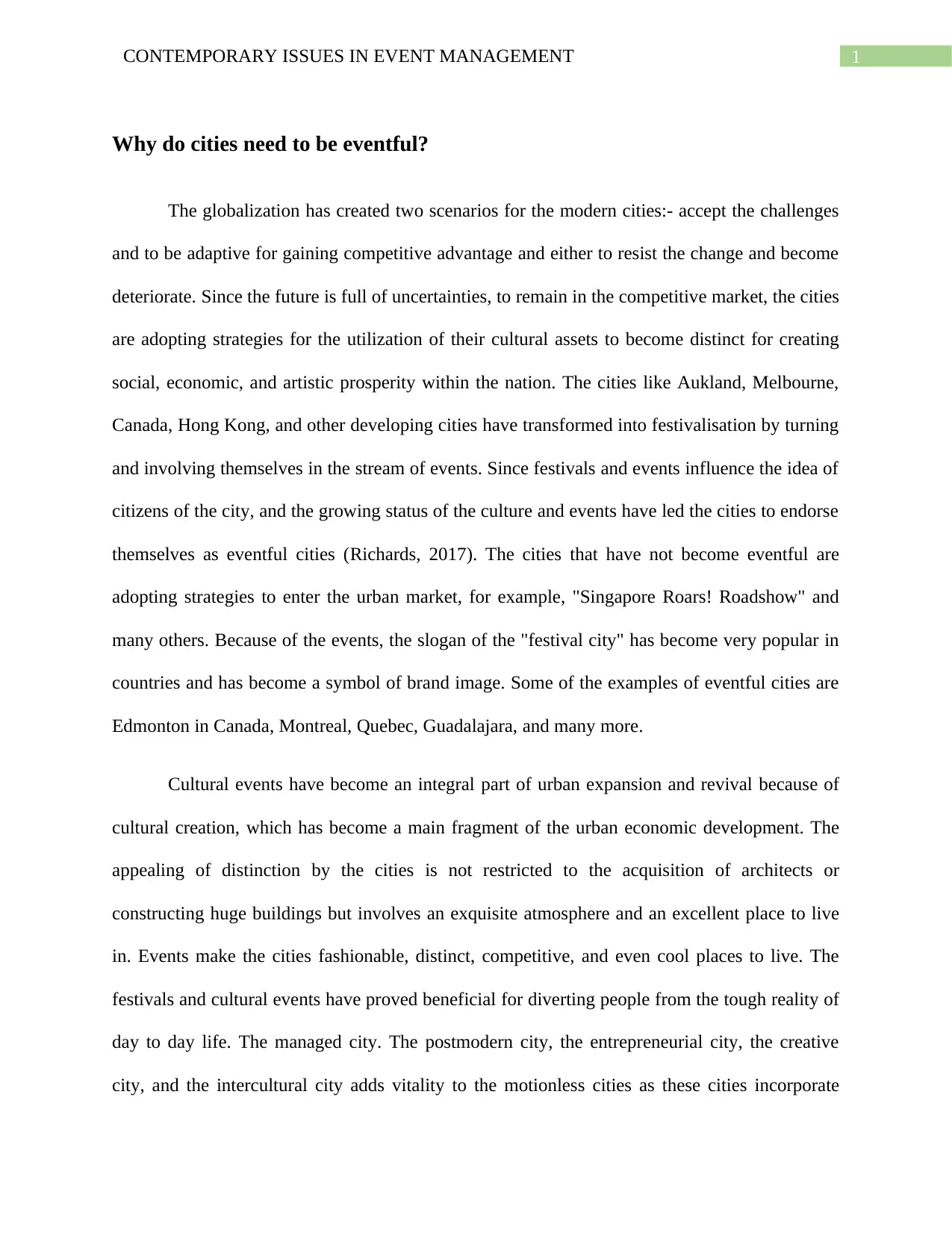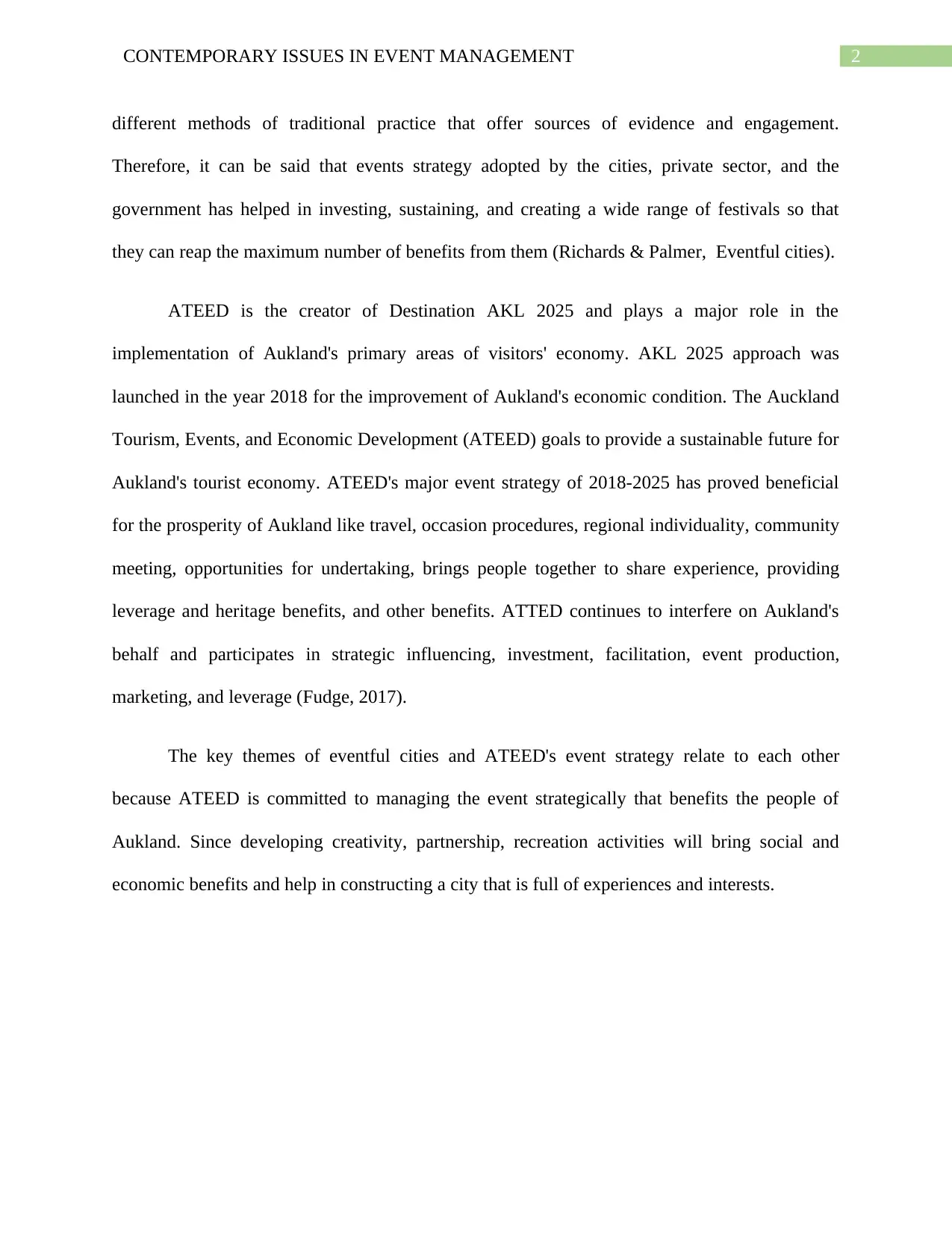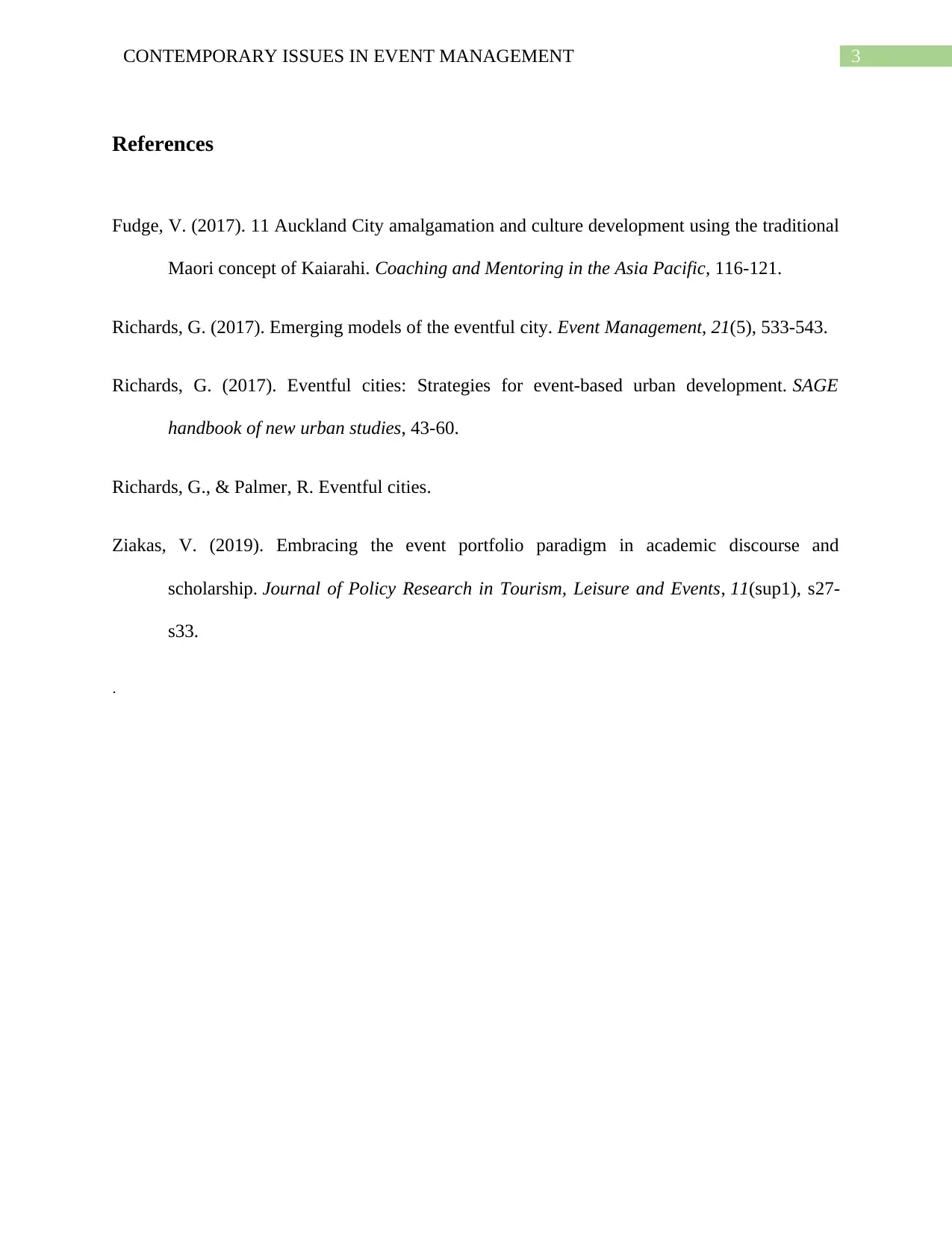Contemporary Issues in Event Management: A Case Study
VerifiedAdded on 2022/08/25
|4
|801
|21
Essay
AI Summary
This essay explores the concept of "eventful cities" and their strategies for urban development, focusing on how cities leverage cultural events to enhance their brand image and economic prosperity. It examines the role of events in attracting tourism, fostering community engagement, and creating a distinct identity. The essay highlights examples like Auckland and ATEED, discussing how strategic event management contributes to economic growth and sustainable development. It references key themes such as creativity, partnership, and recreation, emphasizing the benefits of a well-managed event portfolio for cities. The essay also touches on the challenges and opportunities cities face in the globalized world, advocating for adaptability and the utilization of cultural assets to gain a competitive advantage. The essay concludes by emphasizing the importance of strategic event planning and its impact on the overall success of a city's development and branding.
1 out of 4








![[object Object]](/_next/static/media/star-bottom.7253800d.svg)